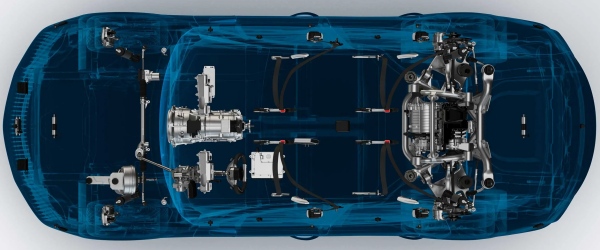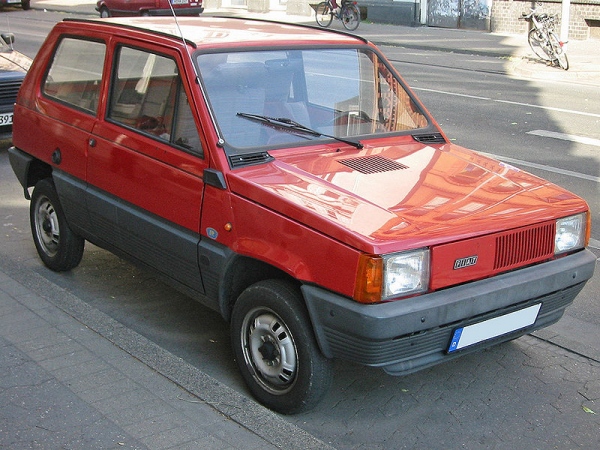Software will extinguish cars
If they continue to be made outside reality, that is.
Quick! Run a job assessment with all top managers at VW, Audi, Porsche, BMW, and Daimler, asking them to code a small game or a simple but working virus.
Then, “if they are not able to do so, fire them immediately, because they are not fit for the job." Here is why, from Spectrum.
Car peak complexity? It’s the software, stupid

- success, price and innovation of a modern car depend on software much more than on mechanics
- even low end cars have dozens of computers or ECUs (Electronic Control Units) hidden inside them, running many million lines of software code (about 120 in a 2020 Volvo, or 150 in a Ford F150)
Car software is too much, too complex and too insecure
- 30 to 50% of the software inside a car is there just to detect misbehaviors of other software, or of some hardware components…
- or, increasingly, to fix, with software what are hardware problems
- too many consumer options and different national regulations mean that not every possible combination can be thoroughly tested before production
- nobody has the full picture: nearly all ECU design and software is outsourced to suppliers, each with its own development approach, none with a full visions of how their piece will interact with all the others
All this means that software integration and security are major, rapidly increasing problems in all cars:
- 40% or more of a vehicle’s development budget can be attributed to systems integration and validation
- much software that still runs in cars today was designed ten or more years ago, when the idea that someone could hack cars, remotely, felt like science-fiction
Car software is also too expensive and wasteful
- in 2017, 40% of the cost of a new car could be attributed to electronic systems, and it may reach 50% by 2030
- fixing a cracked windshield can cost as much as $1,650, if it embeds cameras for automatic emergency braking, or other electronics
- for these reasons, more and more often it is less costly for an insurance company to declare even “young” vehicles a total loss
Why software is filling cars
A non-negligible part of this nightmare is due to good reasons, such as the need to “address impending, evermore stringent CO2 and criteria emission regulations, and meeting the customer expectations regarding performance, comfort, and utility."
Car electrification, which in the medium and long term is good and unavoidable for many reasons, will just accelerate the trend.
Then there are the dumb reasons, with connectedness and autonomous driving in the first place. Fulfilling all the promises made in these field would make everything you have read so far seem a paradise of safety and simplicity.
The car industry does not know how to handle the coming software flood
Internal combustion engine (ICE) vehicles create a mountain of untolerable problems, but if one ignores their software they are more dependable, safer and environmentally cleaner than they ever were. Now, however, they should be replaced by electric vehicles (good) that also drive themselves (BAD). The Spectrum report has many details, all worth reading on why this will be “unmanageable complexity”, but in a nutshell the problem is:
- “at the current pace, [mere] software maintenance of the existing code base” may consume all the software R&D resources of some carmakers
- current approaches of outsourcing and then integrating software and ECUs are not workable for electric vehicles
Unprepared managers. Or unnecessary complexity?
The Spectrum report concludes with experts saying that:
- this complexity is a significant concern across the auto industry
- the projects that will determine if carmakers can survive in their existing structure, are controlled by “managers who have the least experience and knowledge about the most critical part [of those [projects]", that is the software
- therefore, it is necessary to weed out executives that are not fit for their position (see the test mentioned at the top of this post)
Problem is, is all this really necessary AND possible?
Everything you can read here and in the Spectrum report lays on two dogmas:
- personal cars will remain a mass product
- cars must, and above all: CAN become “supercomputers on wheels”, mostly to entertain, look cool, and drive themselves
but both those dogmas are much less solid than they appear, as I explained here, here and here. In one sentence, software-filled cars for the masses are much less feasible and needed than cars that are:
- explicitly designed to be shared
- maximize durability, repairability and longevity also by minimizing their software and microelectronics content
- leave all entertainment and communication to what already does it way better than cars, that is smartphones
I would really like to see a 1980 FIAT Panda, totally redesigned with those criteria:

What about you?
Who writes this, why, and how to help
I am Marco Fioretti, tech writer and aspiring polymath doing human-digital research and popularization.
I do it because YOUR civil rights and the quality of YOUR life depend every year more on how software is used AROUND you.
To this end, I have already shared more than a million words on this blog, without any paywall or user tracking, and am sharing the next million through a newsletter, also without any paywall.
The more direct support I get, the more I can continue to inform for free parents, teachers, decision makers, and everybody else who should know more stuff like this. You can support me with paid subscriptions to my newsletter, donations via PayPal (mfioretti@nexaima.net) or LiberaPay, or in any of the other ways listed here.THANKS for your support!